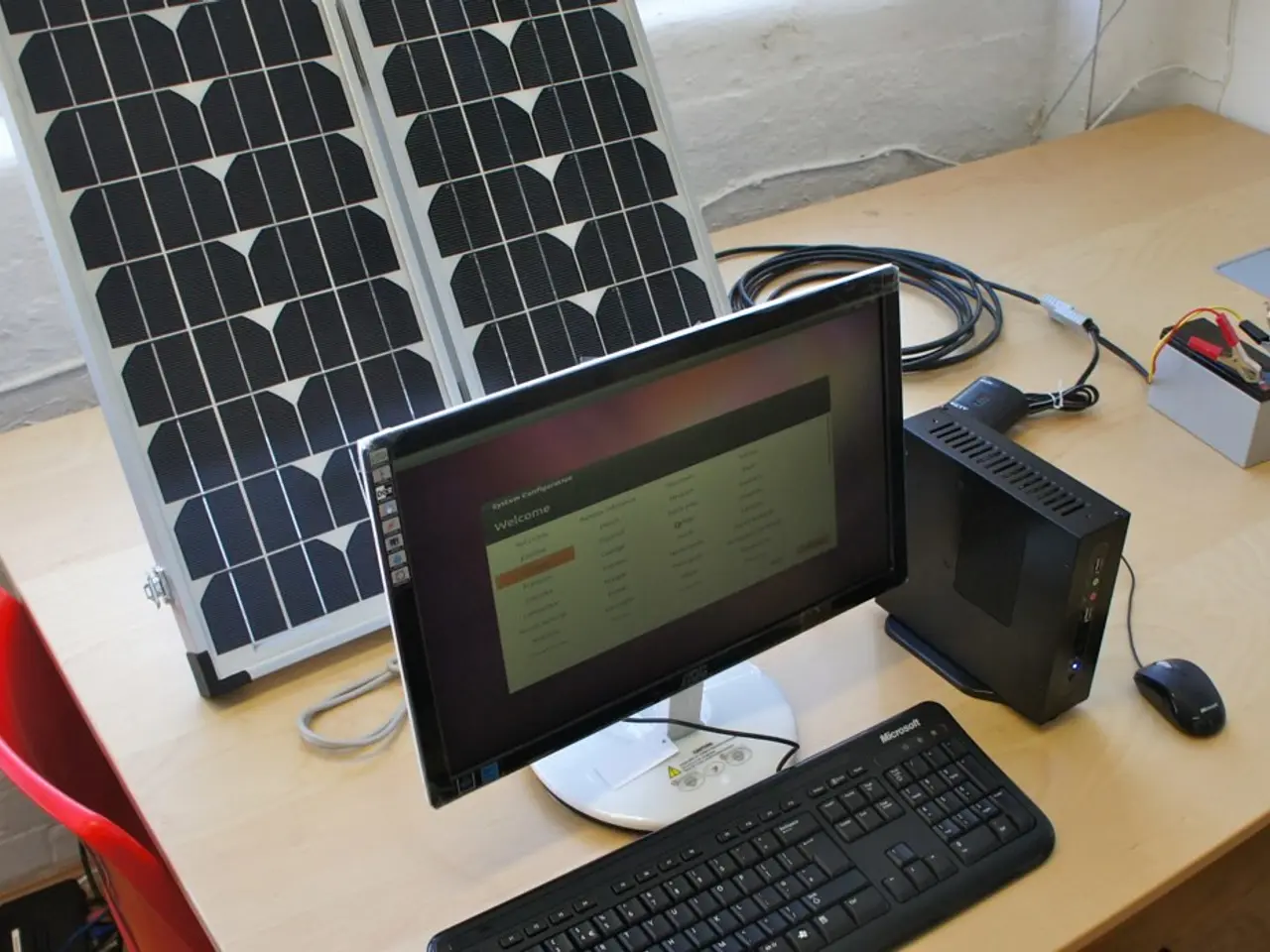Capabilities overview:
Virtus Solis: Revolutionizing Clean Energy with Wireless Space-Based Solar Power
Virtus Solis, a groundbreaking startup, is on a mission to deliver utility-scale clean energy at costs lower than traditional grids, without the need for transmission lines or batteries. The company's innovative system harnesses solar energy from space, converting it into microwaves and beaming it down to Earth to provide a constant, clean, and scalable energy source.
The system, starting at 100 megawatts and scalable from there, operates by capturing solar energy using photovoltaic arrays on satellites in orbit. These satellites harvest solar power nearly continuously, avoiding the interruptions caused by night or weather, unlike terrestrial solar panels. The energy is then converted into microwaves and beamed down to specialized receivers on Earth, supplying clean, reliable baseload power 24/7.
One of the key benefits of this system is its ability to provide a constant energy supply. Orbital platforms receive almost uninterrupted sunlight, enabling round-the-clock solar power generation, avoiding day/night cycles and weather-related disruptions common in terrestrial solar. This continuous power source could help reduce reliance on fossil fuels and lower carbon emissions, supporting global decarbonization efforts.
Another advantage is the scalability of the energy source. With its abundant and steady supply, the system can meet the growing power demands of energy-intensive sectors such as AI data centers, contributing to discussions around sustainable AI infrastructure. Furthermore, it has the potential to power remote or underserved areas, as energy is transmitted wirelessly, making it easier to distribute power to locations difficult to reach with traditional grids.
Despite the technical challenges, startups including Virtus Solis are partnering with aerospace companies to build commercial space-based solar power stations that integrate advanced composites and other space technologies. The company is also taking steps to protect its technology, with patents covering ground-based receivers and beam control systems, and trade secrets for the space hardware.
Virtus Solis is targeting industrial users who need reliable power over long time horizons, starting with a 1-kilowatt demonstration mission planned for 2027. The startup's long-term vision is to offer modular, wireless energy that powers not just factories, but homes and mobile applications.
For those interested in learning more about Virtus Solis or other scalable startups working on energy synthesis and storage, Shabaz Khan, Marketing Manager, is offering assistance. However, the biggest challenge for Virtus Solis remains bridging the capital gap in clean tech, as building at scale takes time and money.
For more information or to get in touch with the experts at Virtus Solis, a form is provided on their website, with a PDF download option available for the form.
References:
[1] Virtus Solis Website [2] TechCrunch Article [3] Space News Article [4] GreenTech Media Article [5] MIT Technology Review Article
Read also:
- Rapid Construction of Rajasthan's 435 Megawatt Solar Power Plant in Eight Months Reduces Carbon Dioxide Emissions by Over 700,000 Tons
- Exporo to Boost Investment in Socially Responsible Projects
- Einstein's Inventions that Changed the World: A Look at Six Inventions Attributed to Him
- SpaceX's groundbreaking space journey is set to blast off on July 31st







